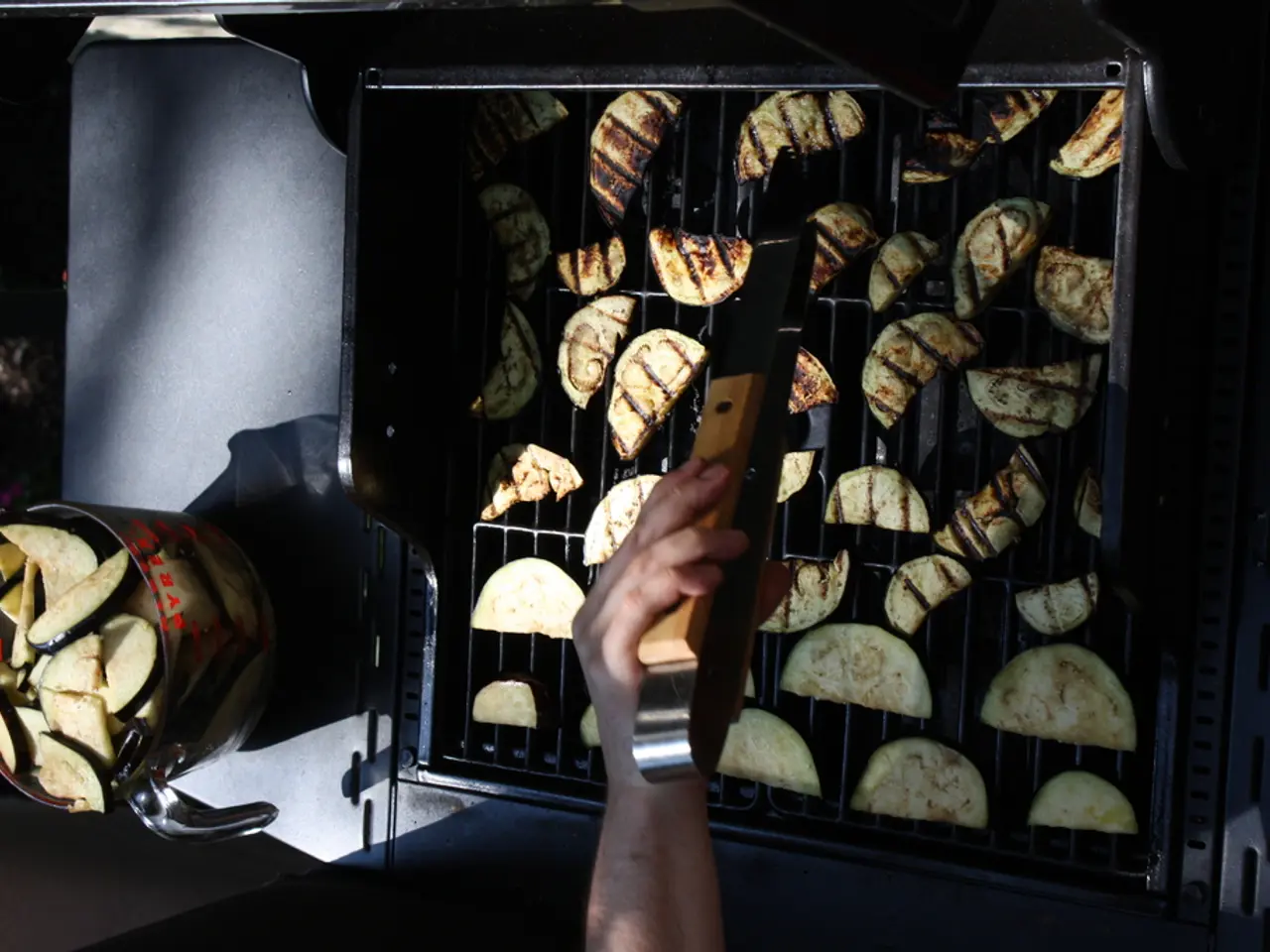Returning migrants in Venezuela face burdens of debt and harsh living standards
In the heart of western Venezuela, Yosbelin Pérez, a resilient entrepreneur, has returned to her homeland after seven months in Mexico. The mother of two took deep pride in making the "budare," a common feature in both rural and urban homes in Venezuela, and ran a factory producing tens of thousands of aluminum round griddles for cooking arepas.
The decision to return was not an easy one for Pérez and her family. They had hoped to escape Venezuela's entrenched political, social, and economic crisis. However, they were unable to make it to the United States and were left with no choice but to return to their in-laws' home in western Venezuela.
Thousands of Venezuelans have returned to their country this year, either voluntarily or otherwise. The combination of economic collapse, political repression, and institutional failures has created a harsh environment impacting citizens' livelihoods and security.
Venezuela has experienced one of the world’s worst economic crises, marked by hyperinflation, severe fiscal deficits, and a massive drop in productive capacity, including the vital oil sector. Blocked reforms and continued exchange controls, price controls, and large public expenditure under Maduro’s government prevented economic recovery. The economy slipped into recession again, severely limiting opportunities and pushing people to migrate.
The political situation in Venezuela is highly repressive and unstable. Nicolas Maduro's tightening grip on power, electoral fraud concerns, and institutional corruption have diminished public trust and increased pressure on citizens. Maduro's government is accused of narco-state activities, repression, and partnering with armed groups, which undermines Venezuelans' security and prospects for democratic governance.
High levels of crime, violence, and human rights abuses, including trafficking and sexual exploitation, especially at border areas such as the Colombian-Venezuelan border, have worsened living conditions for Venezuelans both inside and outside the country. Social support systems are weak, making reintegration for returnees challenging.
However, recent developments such as the U.S. permitting Chevron to resume oil operations in Venezuela indicate shifts toward possible economic reopening or diplomatic negotiations, which could impact migration flows and return decisions. Also, prisoner exchanges between Venezuela and other countries reflect evolving geopolitical ties influencing migration dynamics.
Despite these complex international dynamics, Pérez and many others like her are starting over as the crisis worsens. After selling everything, including her house, belongings, car, and factory equipment in August, Pérez was left with nothing. Her dreams of a better life in another country were shattered, but she remains hopeful.
Pérez's factory included molds and sand for making aluminum round griddles, tools that she had nurtured for years. Now, she must begin anew, rebuilding her life amidst the ongoing crisis. It is a testament to the resilience of the human spirit and the enduring hope for a brighter future in Venezuela.
[1] Migration Policy Institute. (2021). Venezuela's Return Migrants: A Profile. Retrieved from https://www.migrationpolicy.org/research/venezuelas-return-migrants [2] United Nations Development Programme. (2020). Venezuela Crisis Response: Humanitarian Needs Overview. Retrieved from https://www.undp.org/content/undp/en/home/crisis/venezuela-crisis-response.html [3] Reuters. (2021). US allows Chevron to resume oil operations in Venezuela. Retrieved from https://www.reuters.com/business/energy/us-allows-chevron-resume-oil-operations-venezuela-2021-02-02/ [4] BBC News. (2021). Venezuela: Prisoner swap with Spain signals thaw in relations. Retrieved from https://www.bbc.com/news/world-latin-america-56089246 [5] Human Rights Watch. (2020). Venezuela: Human Rights Crisis Worsens. Retrieved from https://www.hrw.org/news/2020/06/25/venezuela-human-rights-crisis-worsens
- The resilient entrepreneur, Yosbelin Pérez, whose factory produced thousands of aluminum round griddles for cooking arepas, returned to Venezuela due to the country's ongoing political, social, and economic crisis, which has led to a high number of migrations. (politics, migration)
- The combination of economic collapse, political repression, and institutional failures in Venezuela has resulted in a harsh environment that affects citizens' livelihoods and security, causing many to return. (war-and-conflicts, general-news)
- Despite the ongoing instability in Venezuela, recent diplomatic negotiations, such as the resumption of oil operations by Chevron, may impact migration flows and return decisions, offering a glimmer of hope for individuals like Pérez. (sports, mixed-martial-arts)








